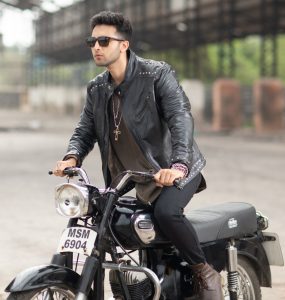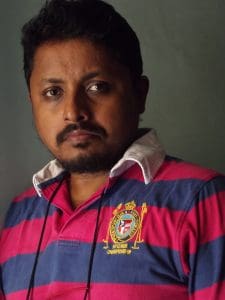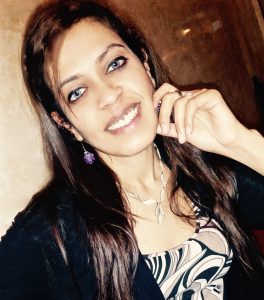India is in the middle of Lok Sabha elections, and the entire nation is in the throes of emotional upheavals ranging from hope to despair, wrath to apathy, and a general heightened level of excitement. Every election brings hope to millions who believe their fortunes would turn around at least this time, but it has remained a gambler’s fallacy every time.
Factors such as a young and rapidly-growing working-age population, increasing education and engineering skill levels that enhance growth of the manufacturing sector, and a growing middle-class that offers sustained growth of the consumer market, are factors that have propelled India towards the status of the world’s sixth-largest economy.
Despite this, India ranks 130 out of 189 countries in the latest human development rankings released last September 14th, by the United Nations Development Programme (UNDP). According to the International Labour Organisation’s (ILO) World Employment and Social Outlook: Trends 2018 report, India’s unemployment rate is 3.5 per cent, with 18.9 million people projected to be jobless in 2019.
India is the second most-populated country in the world according to the 2017 revision of the World Population Prospects. Nearly a fifth of the world’s population live here now. India is also projected to be the world’s most populous country by 2024, surpassing China.
More than 50 percent of the country’s population is below the age of 25, and over 65 percent are aged below 35. It is expected that in 2020, the average age of a citizen in India will be 29 years, compared to 37 in China and 48 in Japan.
For such a huge population, India has a total of about two million kilometres of roads, of which about one million kilometres are poorly constructed. Also, 25 percent of villages in India still have poor road links.
The paradox, therefore, stares us in the face. Given its young population and fast-growing economy, India is at a point in history where it has a huge prospect of garnering global respect and influence. However, we are all mute witnesses to the hectic transport of currency across the country during the past months to ‘fund’ elections. This is money actually meant for development of infrastructure and basic amenities to our citizens.
In our interactions with a few young Indians pan-India and abroad, we asked them about their concerns about India as well as the immediate changes they expect, to set India on the fast-track towards development, granting of equal opportunities, dignity and safety to all citizens.
Here is what they had to say.
Abhishek R Krishnan, Management Consultant, New Delhi
I would like to see India scale up its educational infrastructure, focusing on two key aspects – consistency in quality education, and on developing skill sets relevant to the modern workplace.
India has few quality institutions to absorb the number of students passing out of school. There is a vast drop in the academic experience of students who are unable to get admissions to the few top institutions.
According to the All India Survey on Higher Education, in 2017-18, there were upwards of 3.6 crore students enrolled in undergraduate and postgraduate courses. Out of these, even if we assume that a meagre 10 percent are able to make it to the top institutions of this country, there are over 3.2 crore students who struggle to get access to equal opportunities. This has clearly led to a un/under-employment crisis.
More fundamental is the lack of focus on original thought and the obsolescence of academic content. The rate of change of the global economy is far greater than that of educational institutions in India. I would like to see an extensive reassessment of content and subsequent learning outcomes to bridge this ever-increasing gap between academia and employment in the modern economy.
Aishwarya Setty, Engineering student and Model, Rubaru Miss India Cosmopolitan World 2019, Bengaluru, Ms South India 2019
The responsibility of taking India forward, largely lies on the representatives we elect. We should choose candidates who want to work for India and not for their own benefits, have basic graduation and work experience, and can represent India as a strong nation globally.
Voting should be declared as a duty and not a right. Funding of political parties with citizens’ money has to be stopped. Patronizing any religion or caste must be prohibited. Anyone caught underperforming or found involved in any malpractice has to be dealt with legally, and punished.
Public schools and colleges have to be provided with better teaching staff, infrastructure and options to students on subjects they wish to study. Children have to be taught to learn more than what is in the textbooks, and no one should be discriminated against, based on their caste or religion. Equal priority has to be given to cultural activities along with studies.
Opportunities have to be hiked, to do away with unemployment and poverty. To enhance the quality of life in villages so that they can be on par with urban areas, basic amenities like drinking water, individual toilets, rural roads, animal shelters, skill development centres etc should be made available.
Integrity, honesty, refined culture and kindness make up our national character. India is known for unity in diversity, but in recent times this has been disturbed. We should reinvent our priceless values as well as our unity. We need to inculcate qualities of kindness and generosity among people, enhance their financial status and also bring about regulations for people under the poverty line to meet their daily needs. We need to build a society that is free of crime. Let’s choose wisely and not only make the change, but be the change.
Farvi Motiwale Wadhwa, Managing Editor, Wedding Vows, Dehradun
As a citizen, what matters to me is whether I have responsible candidates to choose from, to be our representatives in parliament. Our country needs more diligent, intelligent and open-minded politicians. They should place the interests of the citizens over anything else, and not politicise every issue to gather votes so that they can continue to stay in the government.
The change I wish to see immediately is that the education system be more organised and have high ethical standards. Educational institutions have become money-minting organisations. Right from admission to books, uniforms to TC, we need to deal with corrupt agencies. We can’t buy books or uniforms locally, since schools have authorized dealers who charge their own rates, much higher than what we can get outside. I am now trying to admit my daughter in Class 1, and have been openly asked for a ransom donation of Rs 5 lakh. We will not give into such practices, but I really hope that strict action be taken and rules be made, for a better, educated India.
Fazullu Rahman S, Editor, Sun Network
The foremost priority for India is to develop an efficient human resource pool, and for this, a major overhaul in the education system is imperative. Right from the early stages of school education, students are compelled to choose certain streams and are exposed to only the subjects that are considered to help them enter specific careers such as engineering, medicine and finance. Hence, they miss out on learning other subjects that can expand their knowledge.
Different boards such as CBSE, Matriculation and State boards should have similar syllabus, and should offer different combinations of subjects for students to choose from.
An unsavoury trend in the education system is of schools accepting only toppers, and claiming that they have 100 percent pass results. So, only a miniscule percentage of ‘toppers’ are given the opportunity to study in certain schools.
My degree is BCA, but I am working as an editor in the media. There is no connect between a student’s degree and the kind of job he takes up. I had the skill sets to suit a job in the media. I was tested for my aptitude and trained to sharpen the skills I had, and here I am. It is important for schools to identify the aptitude and interests of students, and guide them towards a career that match these. Moreover, there should be more practical learning rather than learning theory that may not mean anything in future. A lot of re-thinking and overhauling is needed.
Karan S Khattar, Model, Chennai
As a young person, I feel young India would like to see serious safety measures being taken for women, the aged, and other vulnerable persons. Living in a corruption-free India and experiencing good governance is a desire for almost all Indians. Young India wants politicians to have a minimum of graduation-level education, and a retirement age.
Stricter measures for population and pollution control should be initiated. Proper garbage and drainage system will improve citizens’ overall health. In agriculture, modern techniques should be used to improve yield as well as the living conditions of farmers. Youngsters should be encouraged to become entrepreneurs rather than playing the caste card to seek undeserving favours from the government.
Mazhar Mushthri Fathima, former co-ordinator, Iris Event Management, Chennai
India has a huge market for animals, birds, and also for WOMEN! Young Indians are concerned about the practice of dowry. Rich or poor, educated or otherwise, dowry practices are so common among Indians that it doesn’t seem like an injustice to many in both rural and urban areas. It seems that, as women, we sell ourselves to pay for ourselves!
Dowry often forces poor families to take loans with steep interest rates, or sell off their land to raise money, which can lead to crippling debts. India has the highest number of dowry-related deaths in the world, either by suicide or murder. Around 25000 women are reported to have died in India between 2012 and 2014 in incidents related to dowry. Laws that make dowry a punishable offence are not implemented properly. Individuals, too, should say ‘No’ to Dowry, and be a role model for others.
Nabarun Banerjee, Film Producer, Kolkata
I think there is still a dearth of good backend (support) in the cinema and film industry. I feel there should be fewer instances of ban and censorship of films. The government should introduce measures to support new trends in new-age cinema.
Nish Amarnath, Bestselling author, speaker, and journalist at News Corp, New York
Many schools in India do not prepare young people to be personally, professionally and socially well-adjusted human beings. There is an excessive emphasis on regurgitating archaic content that provides little scope for students to create, explore and take ownership of their learning processes – capabilities that are paramount for a productive life in a global landscape. I’d like to see planning efforts for educational policy that not only encourages social and economic inclusivity, but also focus on equipping young people to be leaders rather than submissive cogs in the wheel.
Second, I’d like to see policy interventions that can change the social and cultural norms which precipitate corrupt behaviours. Institutional configurations and regulatory modifications such as demonetization can be disastrous if elected representatives continue to believe that civilians and civil servants are “cost-benefit optimizers” who can be classically conditioned through punishments, incentives and/or a lack, thereof.
Rohan Seshadri, ACCA Student, Chennai
The impact of media and social media is so huge that they have to be regulated.
Infrastructure has to improve. The common man has to respect public property.
Cleanliness should start from each individual.
School system should be about transfer of knowledge rather than just syllabus, exams and marks.
Roopali Pasricha, Founder, SpotLYK Media, New Delhi
First, I would like to see more acceptability instead of bans in our country. In the recent past, TikTok, PUBG, porn, hookah etc., have been banned. I really don’t know what political leaders want to allow.
Second, I think there should be better schemes for our people. For example, in countries like Singapore, the government pays some amount to the people to stay healthy.
Third, I don’t see a reason to change the names of the cities and states. My request is to please improve the safety measures in states rather than change their names.
I am also hoping that there will be better women-centric laws in the country.
Shruthi Srinivasan, Fifth-year law student at West Bengal National University of Juridical Sciences, Kolkata
As a law student and a young Indian, it is difficult to entirely agree with the current political atmosphere. An immediate concern is about freedom of speech and expression, which is a fundamental right that we are guaranteed under Article 19 of the Constitution. This right has been constantly under fire for the past four years. It began with the NDA government charging student-activists from JNU with sedition, a colonial-era law, and branding them as “anti-national” for expressing views not aligned with that of the majoritarian government.
Last June, five activists were arrested by the Maharashtra police, allegedly for inciting violence at the Bhima-Koregaon annual celebrations. They were charge-sheeted under Unlawful Activities (Prevention) Act. The police claimed that the five activists were Naxalites who were planning on assassinating Prime Minister Narendra Modi. These arrests were made based on mere claims with no evidence, principally to create a chilling effect, discouraging activism and dissent among the masses. India was ranked 138th in the 2018 World Press Freedom Index, which really tells us that we have a long way to go with respect to our right to free speech.
Sonam Chandwani, Founder, KS Legal, Mumbai
We need our government to protect natural resources. Animal abuse and neglect is a growing problem across the nation. I would like our government to strengthen laws against animal cruelty.
When you look at politics, the world is now more divided than united. If you look at the economy, there are clear gaps between the rich and the poor. When you look at ideology, faiths and beliefs are being manipulated. There are always two extremes. I would strive hard to promote moderation within the country.












3.2 crore youth not having access to quality education is a serious concern which leads to massive unemployment and underemployment